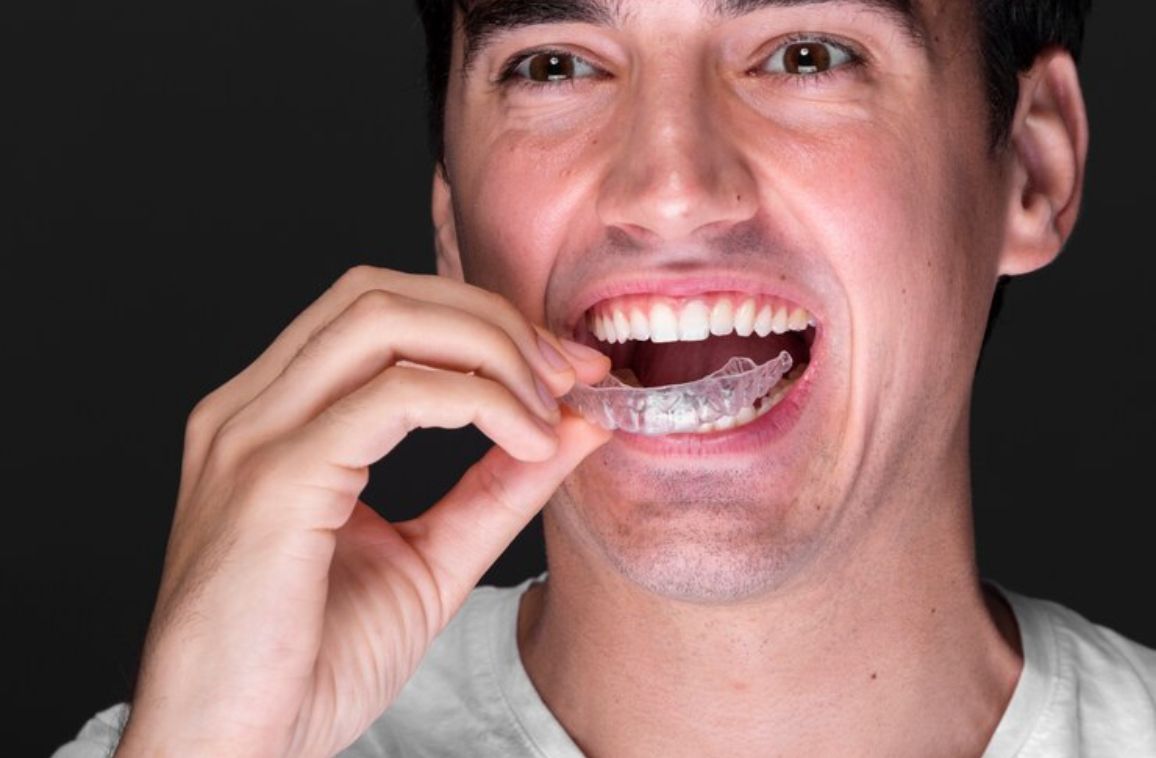Invisalign for crossbite happens to be a highly effective orthodontic treatment for most crossbites. There are several cases where Invisalign can fix crossbites rather better as compared to traditional braces.
A crossbite is a sort of malocclusion (bite issue) whereby the upper and lower teeth do not line up properly. A few of the bottom teeth are rather outside the upper teeth when the jaws close.
In several cases, a crossbite is hereditary. In such situations, a person is born with a lower jaw that is either too big or even too small. Yet, a crossbite can indeed also be a result of bad habits.
A few causes of crossbite include:
- Thumb-sucking.
- Mouth-breathing.
- Delayed eruption of one’s permanent teeth.
- Cleft lip or perhaps palate.
- Losing baby teeth a bit too early or keeping them rather too late.
- Having a dental arch that is too small.
- An unusually small upper jaw or even large lower jaw (skeletal crossbite).
If left untreated, a crossbite can cause a variety of issues, including damage to one’s teeth and gums, as well as even jaw problems.
Invisalign treatment is indeed highly effective for treating several forms of crossbite.
Straighten one’s teeth at a fraction of the cost.
What is Invisalign and How Does It Work?
Invisalign is considered to be a system of clear aligners. It is an effective alternative to traditional metal braces. Clear aligners are rather transparent plastic trays that do apply gentle pressure to slowly reposition teeth.
Unlike braces, Invisalign treatment is, of course, discrete, convenient, and comfortable.
Invisalign is no doubt effective at fixing crossbites as it separates the dental arches. The upper and also lower teeth are not touching, which means a tooth in a crossbite is not blocking another from moving into its correct position. This does indeed make the process simpler and also faster than with braces.
Does Invisalign for Crossbite need to be fixed?
Crossbites are happening to be the more serious bite issues. If not treated, they can rather lead to various complications, including:
- Chipped, cracked, or even otherwise damaged teeth.
- Increased risk for gum disease and also tooth decay.
- Receding gums.
- Pain when biting or perhaps chewing.
- Headache.
- Toothaches.
- TMJ problems.
Invisalign can of course fix crossbites in most situations more easily and also faster than braces. If having a crossbite, check with a dental professional if Invisalign treatment is well suited.
Time Taken for Invisalign to Fix a Crossbite?
In several cases, Invisalign can indeed fix crossbites within 12 to 36 months.

Pros and Cons of Invisalign for Crossbites
Pros of Invisalign for crossbite:
- Covers the entire biting surface.
- Removable, which makes cleaning one’s teeth easier.
- More discrete, convenient, and comfortable than braces.
- No metal wires or even perhaps brackets to cut one’s mouth.
- Invisalign aligners are no doubt easier to keep clean.
- Equally or even more affordable than braces.
- Can prevent bruxism.
- Invisalign clear aligner plastic is, of course, FDA-approved for medical use.
- Studies do show clear aligner treatment that causes less discomfort as compared to braces.
- A beautiful smile and no doubt more confidence.
Cons of Invisalign for crossbite:
- May not indeed be suitable for severe cases.
- Invisalign is rather removable, meaning treatment outcomes do depend partially on the wearer.
- Little tooth discomfort is involved.
- Can be expensive.
Conclusion
Invisalign can indeed fix most cases of crossbite on account of misaligned teeth. Crossbites caused by skeletal issues usually require alternative treatments.
Treating skeletal crossbites means easier comfort in children and teenagers, as their growing jaws can be redirected.


